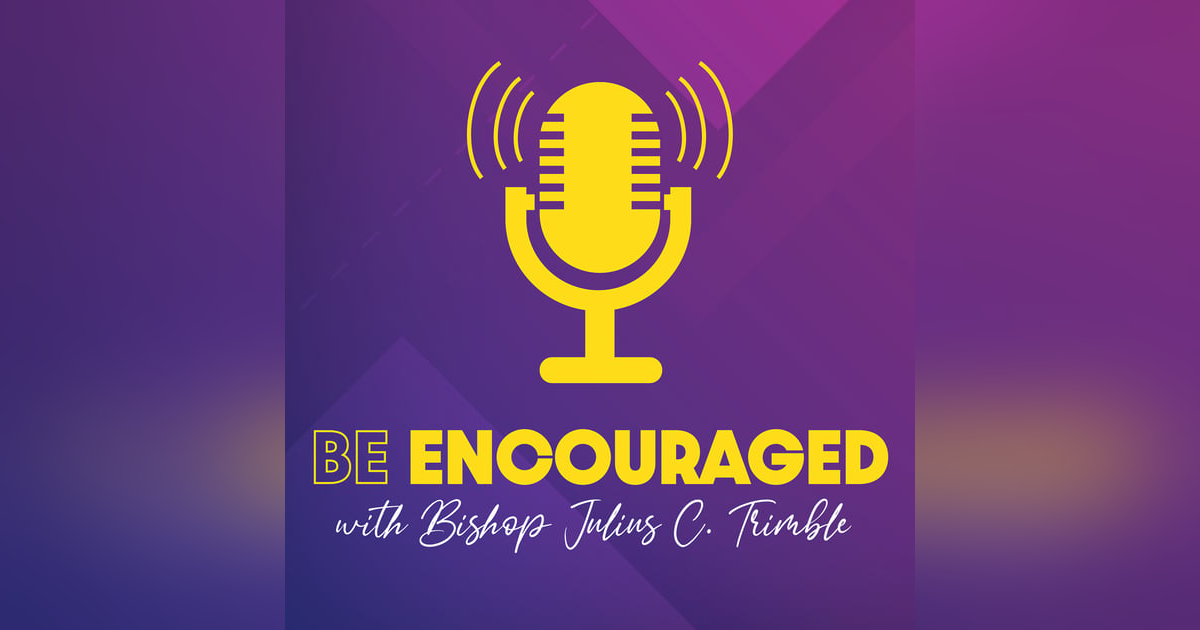Moving Forward: Bishop Trimble and Rev. Dr. Mark Holland from MainStream UMC.com on Post-Conflict United Methodist Church following General Conference

Bishop Julius C. Trimble is the Resident Bishop of the Indiana Area of the United Methodist Church.
Bishop Trimble has the personal mission to encourage all people with the love of Jesus Christ to rise to their highest potential. It is his commitment to his personal mission that led Bishop Trimble to create the “To Be Encouraged” Podcast along with co-host Rev.Dr. Brad Miller.
Bishop Trimble says, “I am compelled by Jesus to share with you an encouraging word or two about Jesus, theology, the Bible, the pandemic, the environment, racism, voting rights, human sexuality, and the state of the United Methodist Church.”
To Be Encouraged with Bishop Julius C. Trimble is to be published weekly and is available at www.tobeencouraged.com and all the podcast directories.
https://www.inumc.org/bishop/office-of-the-bishop/
On Episode 107
**Episode Title: Moving Forward: Bishop Trimble and Rev. Dr. Mark Holland from MainStream UMC.com on Post-Conflict United Methodist Church following General Conference
**Podcast: To Be Encouraged**
**Host: Rev. Dr. Brad Miller**
**Guests: Bishop Julius C. Trimble, Rev. Dr. Mark Holland**
In this insightful episode of "To Be Encouraged," host Rev. Dr. Brad Miller welcomes two distinguished guests, Bishop Julius C. Trimble and Rev. Dr. Mark Holland, Executive Director of Mainstream UMC. The discussion dives deep into pivotal issues facing the United Methodist Church (UMC), such as regionalization, disaffiliation, and the church’s mission moving forward. Here are three key takeaways from this episode:
### 1. **Optimism Amid Change and Challenges**
Bishop Julius C. Trimble shares an optimistic vision for the future of the United Methodist Church. He emphasizes that the church has successfully navigated the challenges posed by the COVID-19 pandemic, which he believes were more daunting than the ongoing debates over human sexuality. Bishop Trimble highlights the resilience and steadfastness of the church, encouraging the community to seize this moment to share love broadly and continue the mission of making disciples. His excitement for meeting young pastors and witnessing the continued commitment to God's call is palpable, demonstrating his hope and encouragement for the UMC’s future.
### 2. **Fundamental Shifts: Regionalization and Disaffiliation**
Rev. Dr. Mark Holland explores the significant outcomes from the recent General Conference, particularly focusing on the topics of regionalization and the end of church disaffiliation. One of the historic changes discussed is the overwhelming support for regionalization, which saw a 78% approval rate at the General Conference. This move allows different regions to navigate their distinct contexts while remaining united under the same church umbrella. Additionally, the decision to stop allowing churches to disaffiliate marks a deliberate effort to cease divisions and conflicts within the UMC, fostering a more united and inclusive community.
### 3. **Removal of Discriminatory Language**
Both guests express a strong commitment to progressive change within the United Methodist Church. One of the landmark decisions discussed is the removal of harmful and discriminatory language from the church’s Book of Discipline. This change signifies a step toward inclusivity and neutrality, eliminating language that has caused marginalization while striving to keep the church’s teachings relevant and compassionate. The conversation notes that there was broad consensus and substantial support for this shift, reflecting a collective move towards a more just and affirming faith community.
### Closing Reflection
The episode wraps up with a moving prayer from Bishop Trimble and a heartfelt reminder from Rev. Dr. Brad Miller to always do good. The dialogue throughout this episode is infused with hope and a clear vision for a more unified and inclusive United Methodist Church, making it a must-listen for anyone invested in the future of their faith community.
**Tune in to "To Be Encouraged" for more inspiring discussions and reflections on faith, love, and the journey ahead for the United Methodist Church.**


